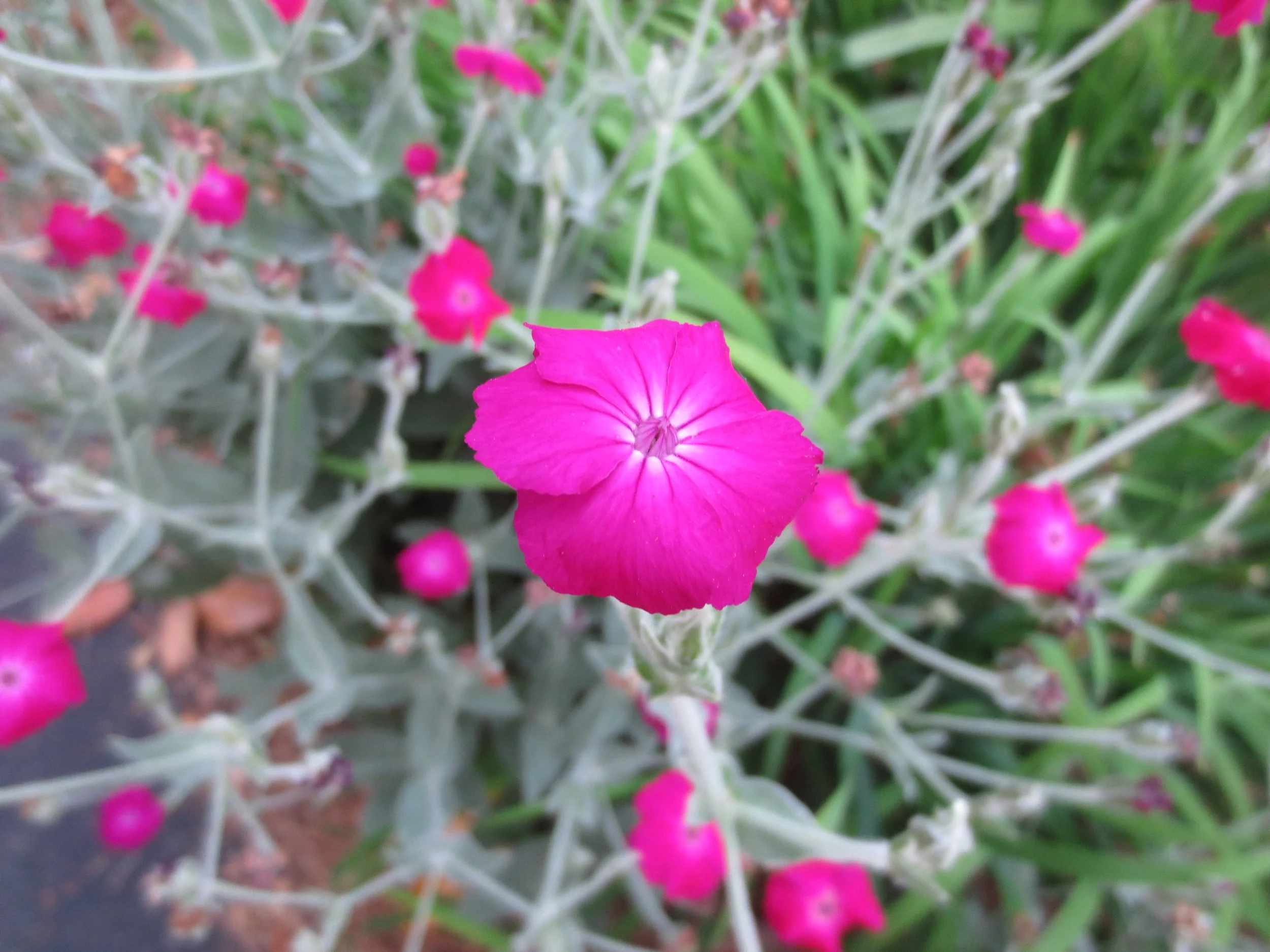Chaenomeles (pronounced ky-NO-may-leez) is a deciduous shrub that is commonly known as Flowering Quince, Apple Japonica or Japonica Pear. Its flowers open in earliest spring, before leaves appear. Flowers mature into fragrant, yellow, rock-hard fruits that are slightly larger than golf balls. These are inedible off the plant, but can be processed into jelly. Cut stems of Flowering Quince can be forced into bloom indoors. Prune judiciously to improve shape and encourage branching.
Two species, C. japonica and C. speciosa, are common in the southeast, as well as a hybrid of the two, C. x superba. They are similar, but speciosa has a more upright shape, dense twiggy interior growth, and sharp thorns. C. speciosa grows to six feet tall. C. japonica is shorter, reaching four feet. Chaenomeles requires acidic soil and full sun for best flowering, but will accept some shade. It grows in zones 5-9 and prefers average, slightly moist to dry soil.
Flowers are red, orange, pink, white, or burgundy. Blooms are normally five-petal singles, but the ‘Double Take’ series are doubles. ‘Toyo-Nishiki’ has pink and white flowers on the same plant. ‘Cameo’ has a lovely semi-double, peach flower.
Chaenomeles are easily grown and are deer resistant. They occasionally host aphids and several varieties of leaf spot.

